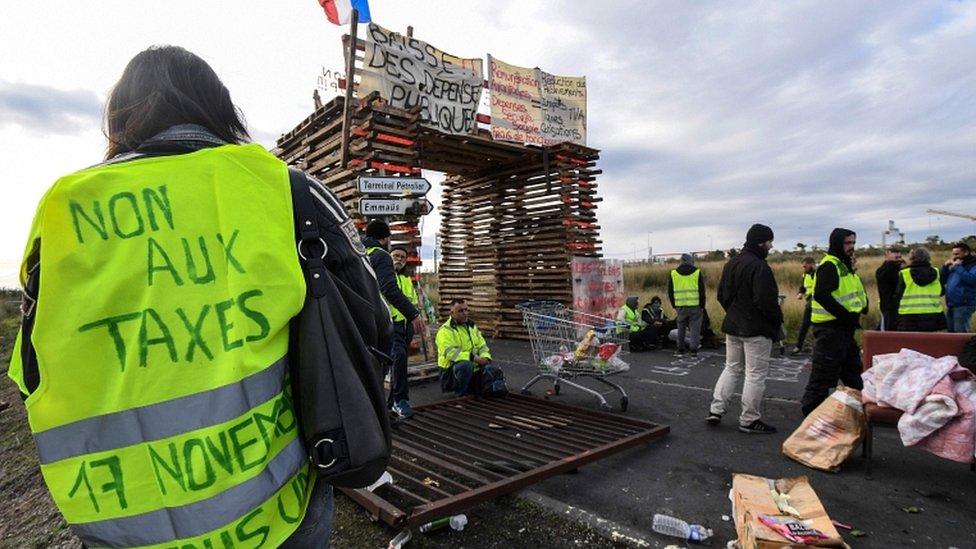Christophe Dettinger: Boxer surrenders after clash with riot police in Paris
- Published
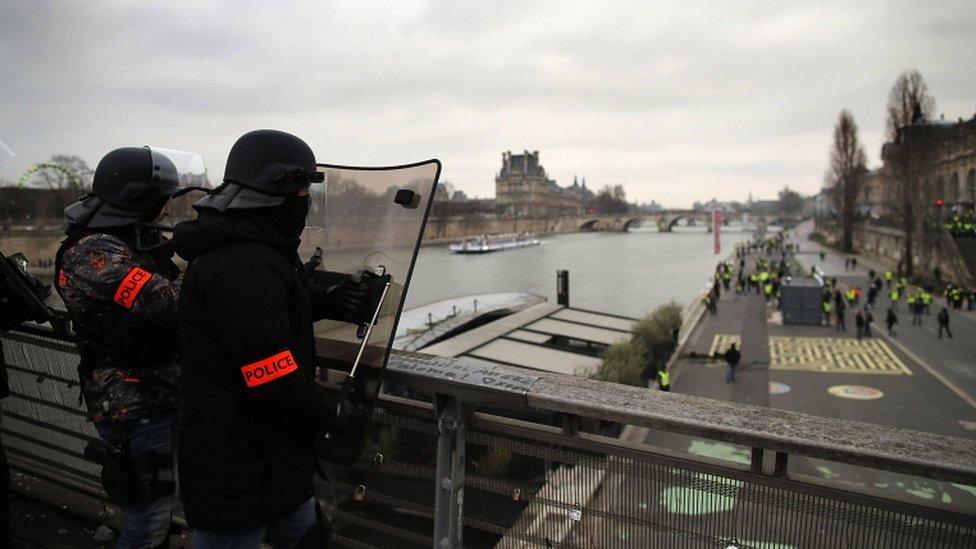
The man was filmed hitting the policeman on a Paris bridge
A former professional boxer who was filmed at the weekend punching a police officer on a bridge in Paris during a "yellow vest" protest has been detained by police in France.
In the footage, Christophe Dettinger hits the policeman and other protesters try to kick him.
Mr Dettinger, 37, said later he had "reacted wrongly" in anger after he, his wife and a friend were tear-gassed.
Some 50,000 protesters took to the streets on Saturday in French cities.
The former heavyweight gave himself up to police and was immediately detained, external, the French interior minister tweeted.
He was accompanied by his lawyer, and a search was conducted at his home, reports say.
Meanwhile, Italy's populist government has voiced support for the French yellow vests, criticising President Emmanuel Macron.
"Yellow vests, do not weaken!" wrote Deputy Prime Minister Luigi Di Maio, head of the anti-establishment Five Star Movement (M5S), in a blog post.
Interior Minister Matteo Salvini, of the right-wing League, said: "I support honest citizens protesting against a president who governs against his people". However, he condemned the violence at yellow vest demonstrations.
How did the boxer explain his actions?
The former boxer now works as public servant at a town hall south of Paris, reports say.
A clip of him punching the officer, on the Léopold-Sédar-Senghor bridge which links the Tuileries gardens to the Musée d'Orsay, has been viewed millions of times.
In a video statement recorded before he handed himself in, Mr Dettinger says he saw police tear-gassing and "hurting" people with flash-ball (rubber bullet) rounds in Paris, external on Saturday.
He became angry after he, his wife and a friend were tear-gassed and he was, he says, defending himself.
The boxer says he is a yellow vest and has attended all eight waves of protests, angered by those in power in France.
"They stuff themselves on our backs but it is always us, the little people, who pay," he says.
Describing himself as "neither far left nor far right", he says he is protesting because he is concerned about pensioners, his children's future and unmarried women.
How did the authorities react?
Two gendarmes caught in Saturday's clash have filed a complaint, AFP news agency reports.
Earlier, the police officers' union, the SCPN, and the minister of the interior published the man's picture on Twitter without naming him.
Allow X content?
This article contains content provided by X. We ask for your permission before anything is loaded, as they may be using cookies and other technologies. You may want to read X’s cookie policy, external and privacy policy, external before accepting. To view this content choose ‘accept and continue’.

The SCNP tweeted this message to him: "Sir, you knocked a colleague to the ground. You have been identified.
"For a boxer, apparently you don't respect any of the rules. You are going to learn those of the criminal code."
The French boxing federation condemned Saturday's violence, saying it "ran completely contrary to the values of our sport", AFP reports.
"The French Boxing Federation sends its support to the family and loved ones of the officer who was a victim of this individual, but equally to all the security forces who have been on duty these last weeks," it says.
Why are there protests?
At the weekend, there were renewed yellow-vest protests after a lull over the festive period.
About 50,000 people took to the streets again on Saturday in cities around France - more than the previous week's protest, but fewer than the 280,000 who turned out in November.
Several men driving a forklift truck also smashed open the doors of the ministry of government spokesman Benjamin Griveaux in Paris, who denounced the break-in as an "unacceptable attack on the Republic".
What began as a protest about a fuel tax back in November has escalated into widespread anger at rising living costs.
The protest began as a grassroots French provincial movement with people donning high-visibility jackets, which by law must be carried by every vehicle in France.
It broadened to include issues involving families' struggle to make ends meet, with calls for higher wages, lower taxes, better pensions and easier university entry requirements.
Mr Macron made a raft of economic concessions in December to appease the protesters. But he struck a defiant tone in his new year address, saying the government would push on with its reform programme, and would "make no allowances in guaranteeing public order."
- Published5 January 2019
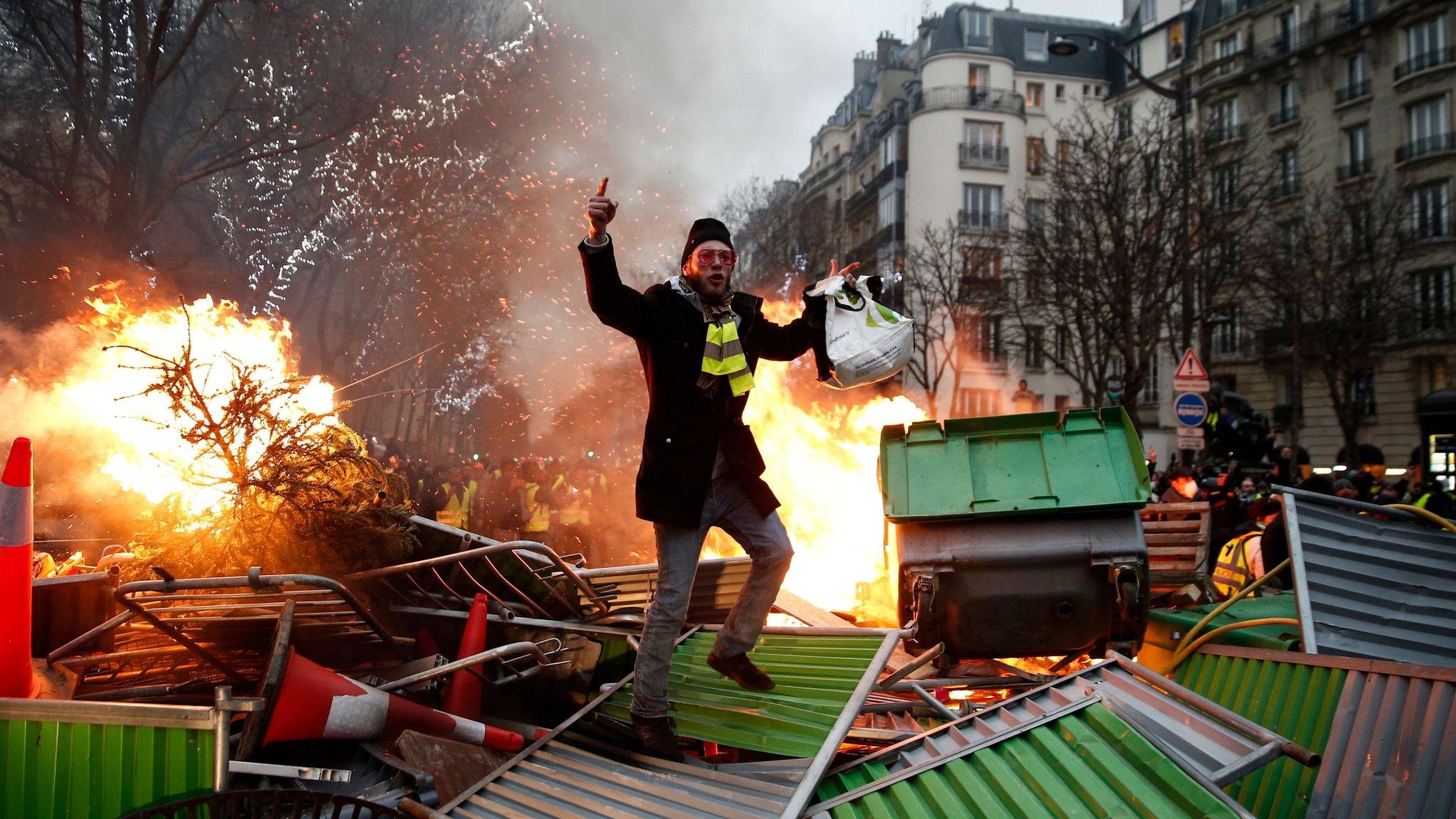
- Published3 January 2019
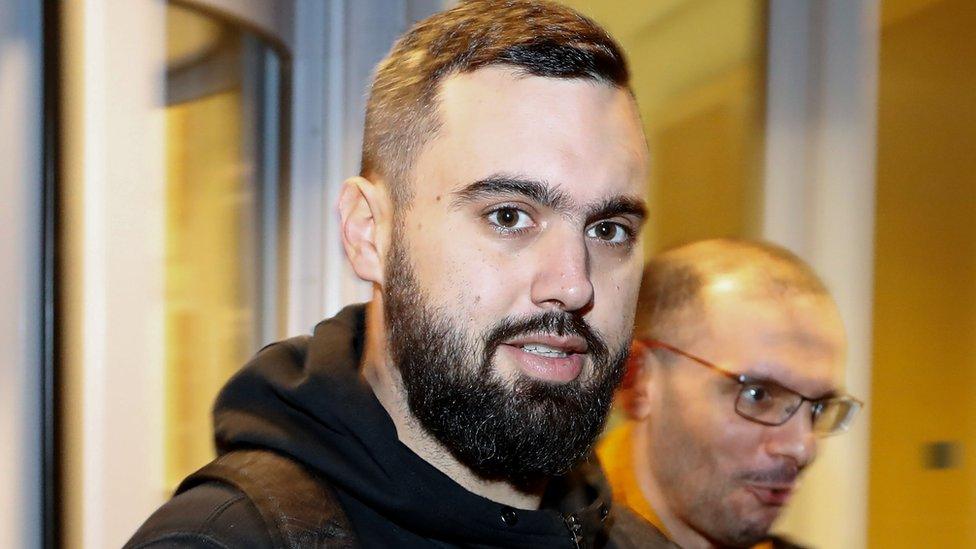
- Published31 December 2018
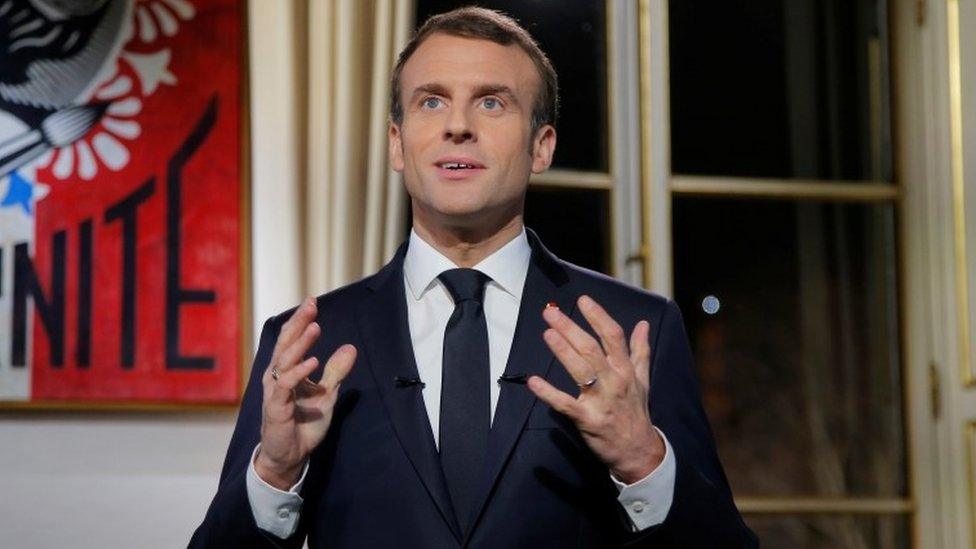
- Published23 December 2018
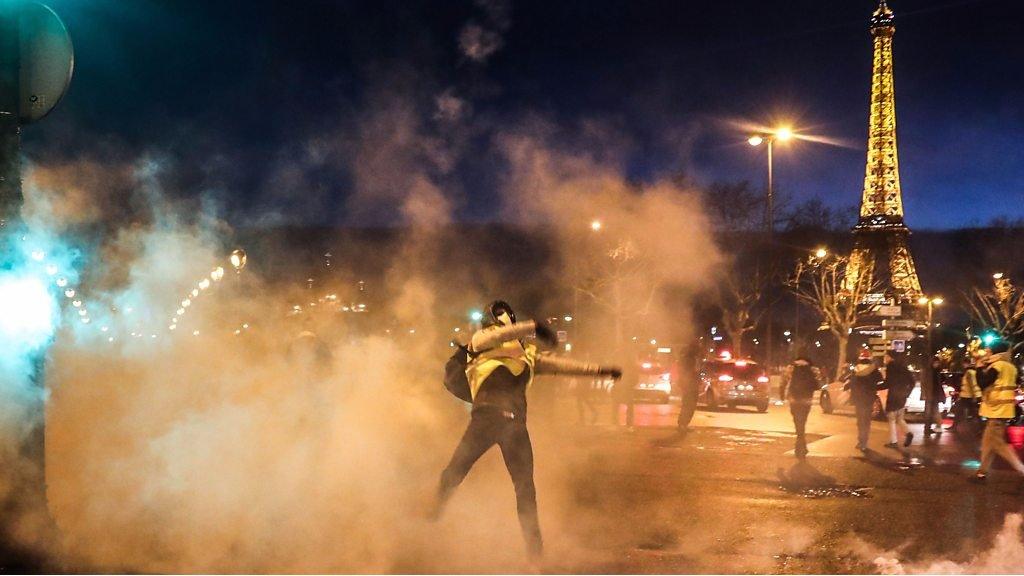
- Published22 December 2018
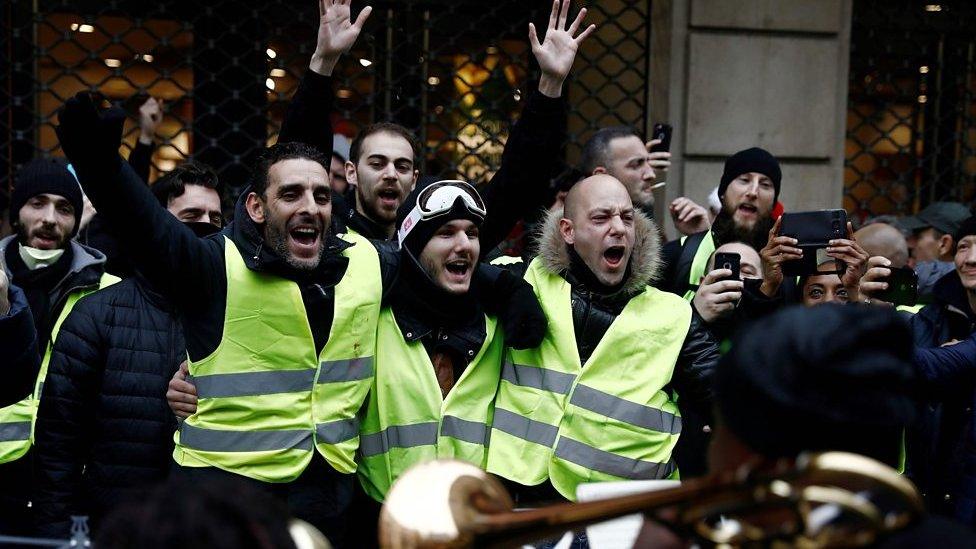
- Published22 December 2018
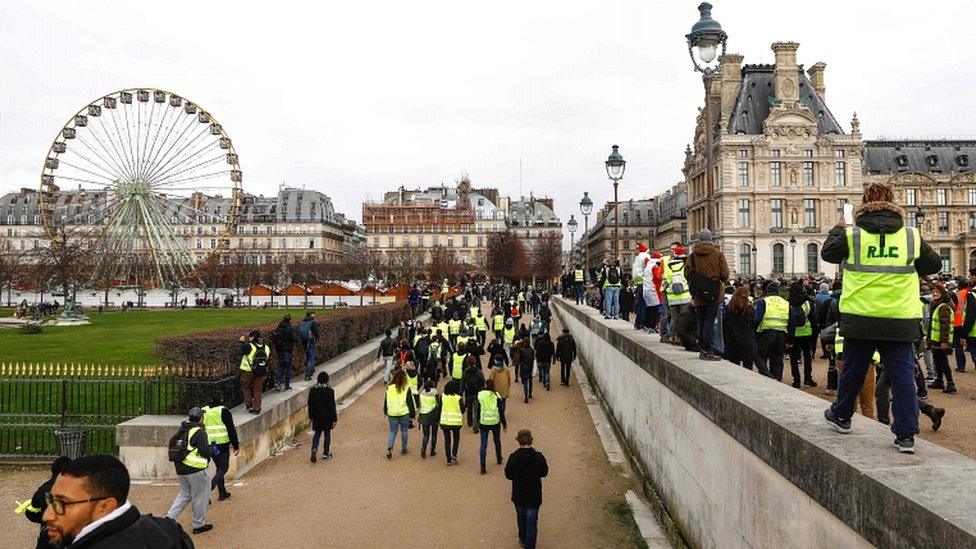
- Published6 December 2018
